The 8 Things You Need to Know Before Starting Your First Garden
Starting your first garden from scratch, especially for very beginner gardeners, can be intimidating—but it doesn’t have to be! Successful gardens take years of learning, experimenting, failing and trying again.
The joy of gardening is the journey.
However, to start you on the best foot forward, here are eight things to know before starting your first garden.
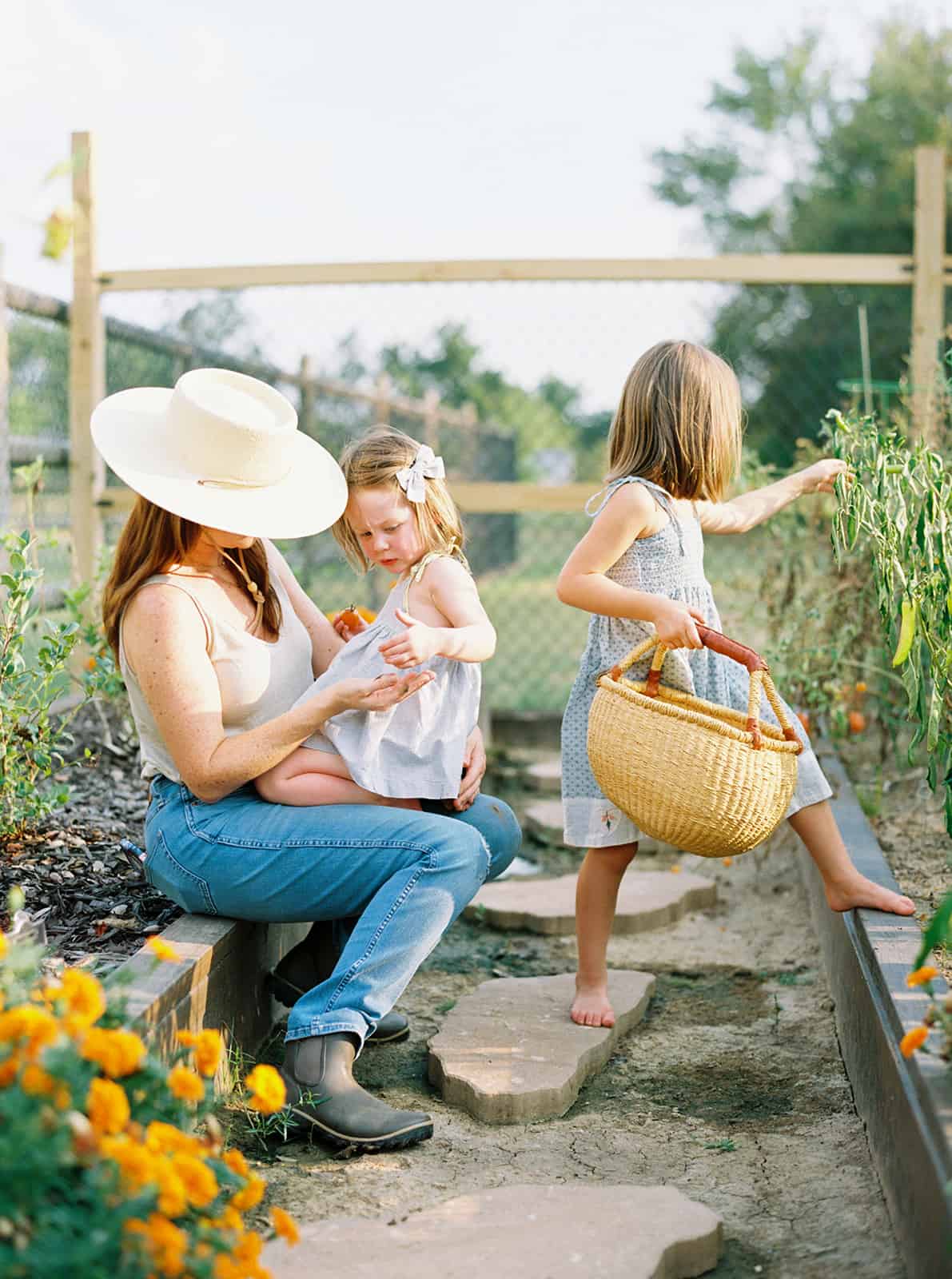
I have had some sort of garden since I was a child. I loved earthworms and caring for the little seedlings my mom would share with me. Martha Stewart and Monty Don have been my inspiration for years.
However, it wasn’t until we moved to some acreage and we had more space that I began to become interested in gardening on a deeper level.
As I’ve shared my gardening experiences over on Instagram, I’ve received more gardening questions—mostly from beginner gardeners.
Therefore, I’ve compiled the eight tips for beginner gardeners that I have shared over and over again in my DM’s to share with you here:
- Find Your Hardiness Zone
- Decide What to Grow
- Find the Best Location for Your Garden
- Determine Your Soil’s Quality
- Design Your Garden
- Decide to Start with Seeds or Seedlings
- Plan Your Watering Method
- Consider How Much Maintenance Your Garden Will Require
All of my gardening advice is from personal experience. There are always different ways and methods, never one perfect way. Do your own research and decide what is best for you. I hope this article helps you on your gardening journey!
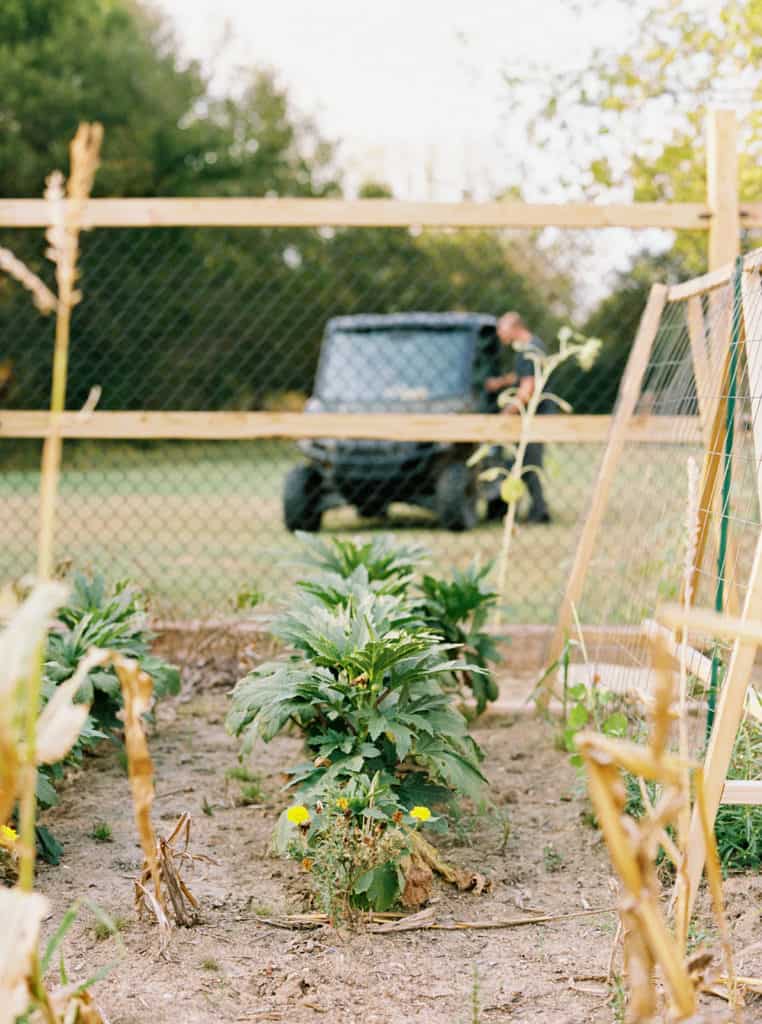
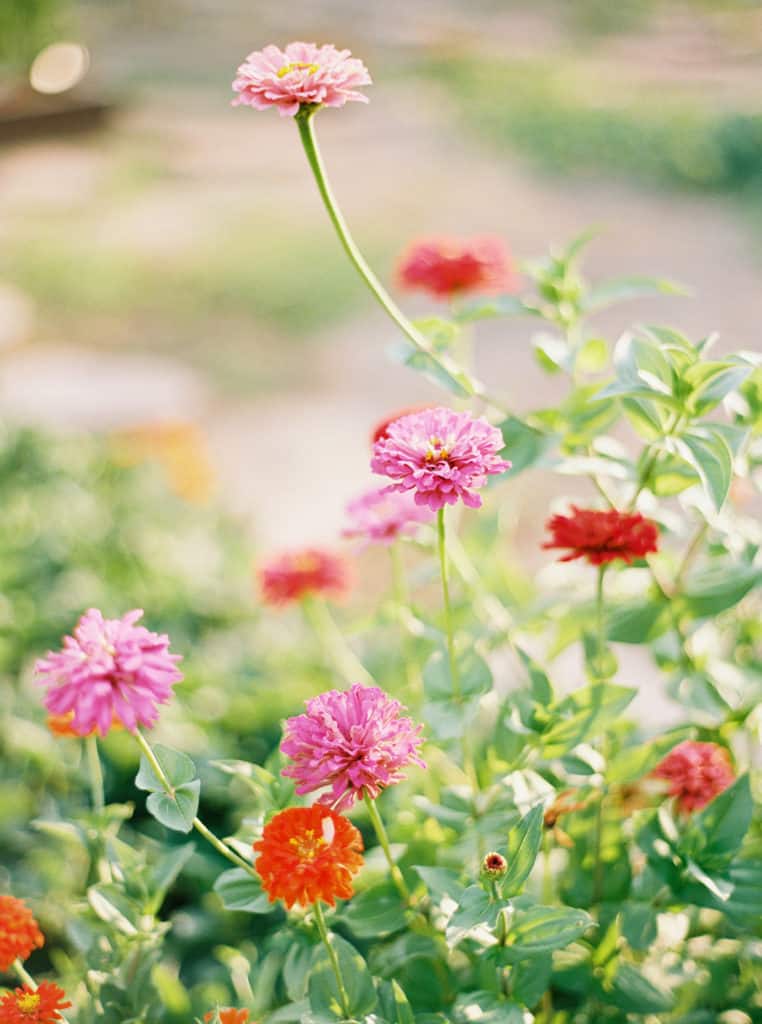
Find Your Hardiness Zone
Finding your hardiness zone will be very valuable when starting your first garden. Knowing your zone allows you to best determine what sort of plants to grow.
To find your zone, go to https://planthardiness.ars.usda.gov/ and type in your zip code.
There are other online sites that can provide your hardiness zone, but this is the most accurate one.
Once you know your zone, you can start evaluating what you can grow in your first garden.
What to Grow in Your First Garden
Grow whatever you want. Honestly, I think as a beginner gardener, you should try and experiment as much as you please.
However, garden costs can add up, so while I always recommend budgeting for some experimental and fun plants, here are a few tips to refine your list of things to grow.
If you want to grow vegetables…
Grow the vegetables you and your family currently eats right now. I know, we get romantic and think if we grow radishes, we’ll eat them, when we despise radishes. Don’t do that. Grow what you eat now.
Maybe make a list of what you buy at the grocery, and eat, and start there for your vegetable garden.
Then, compare those vegetables with your zone, soil condition, space, sun, etc. to then determine what types of those vegetables you should grow.
If you want to grow flowers…
Especially for a cut flower garden, I always recommend zinnias to beginner gardeners. Zinnias are beautiful and so easy to grow, even from seed. They are hardy and can handle all kinds of weather. If you want a confident start, get zinnias.
Other cut flowers that are a great option include dahlias, roses, cosmos, coneflowers and more.
Think about colors, textures, pollinator-friendly options and then compare to your zone, soil, space, sun, etc. to determine which types are best for you.
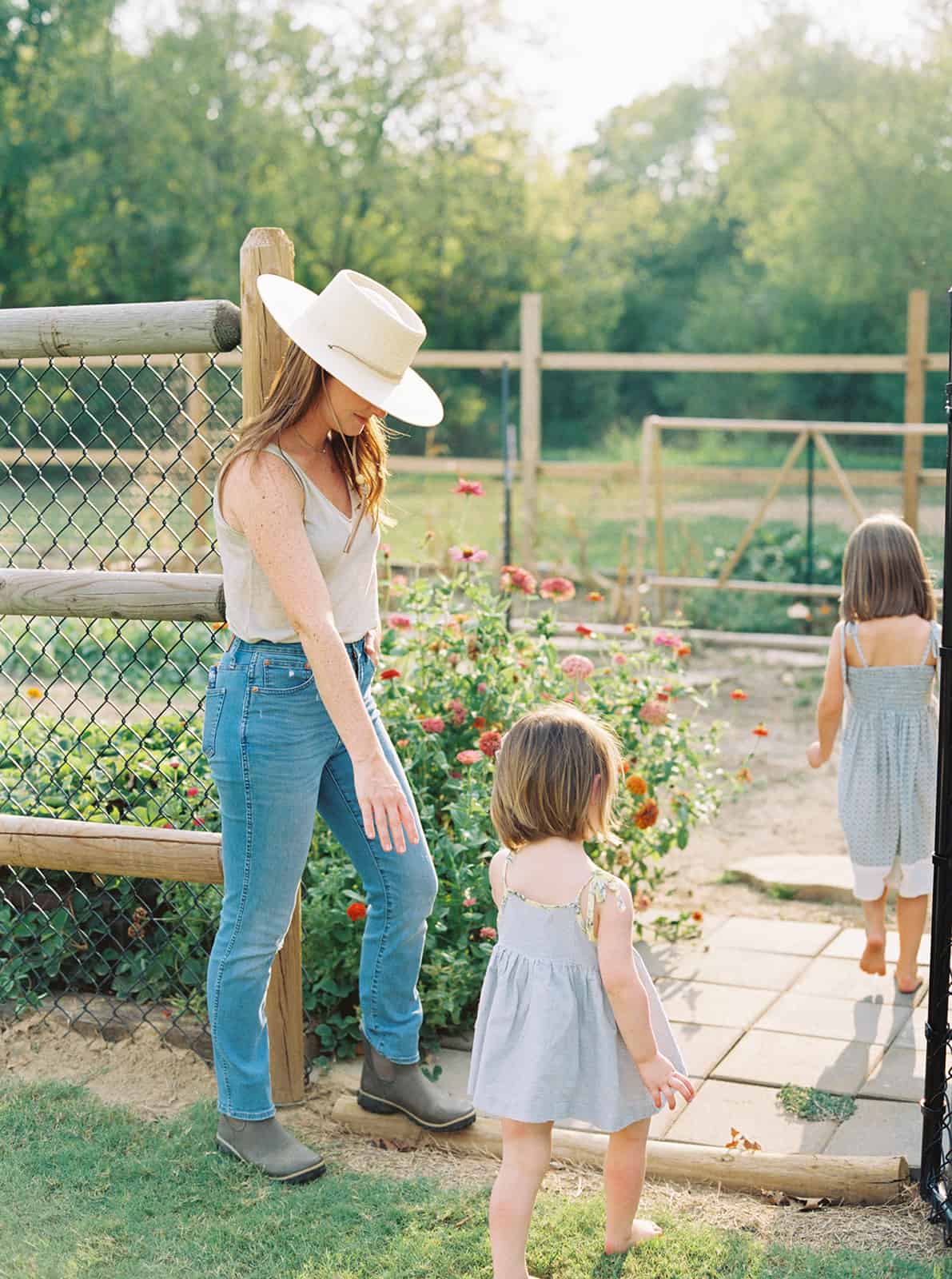
Choose the Perfect Garden Location
Unless you are purposefully planting a shade garden, most garden plants need 6-8 hours of sunlight each day. Therefore, you need a very sunny spot away from trees, structures or anything that would cast a long shadow.
One way to determine if the location you’ve chosen will work is to set our flags, or any sort of marker, on the outskirts of where you want to place your garden. Every hour on a sunny day, go outside and check that no shadow has fallen on the markers or into the garden.
Sometimes we can think a space is sunny, but then realize it is only getting 4-6 hours of sun.
How to Determine Your Garden Soil’s Quality
The best way to determine your garden soil’s quality is to send a sample into your local extension office.
You can certainly purchase an at-home soil test, but I have heard of too many irregularities and inaccuracies with them. And, I have not found one I really trust yet.
But, if you send your samples to your local extension office, not only is it free, but you’re receiving more accurate results from an actual science lab performed by professionals. If you can, I highly recommend having your soil lab-tested through your local extension.
If you live in Oklahoma, click here for more information about our local extension office with OSU.
Once you receive your results back, you can determine how much your soil may need to be amended. Or, if you may need to purchase additional soil for a better start.
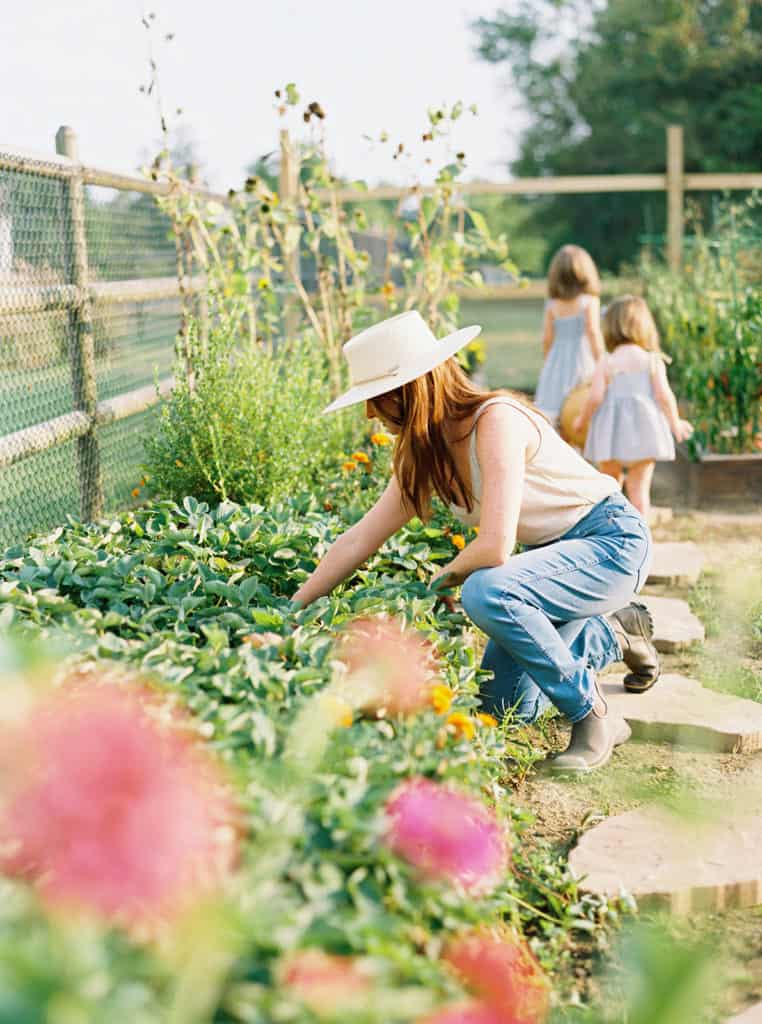
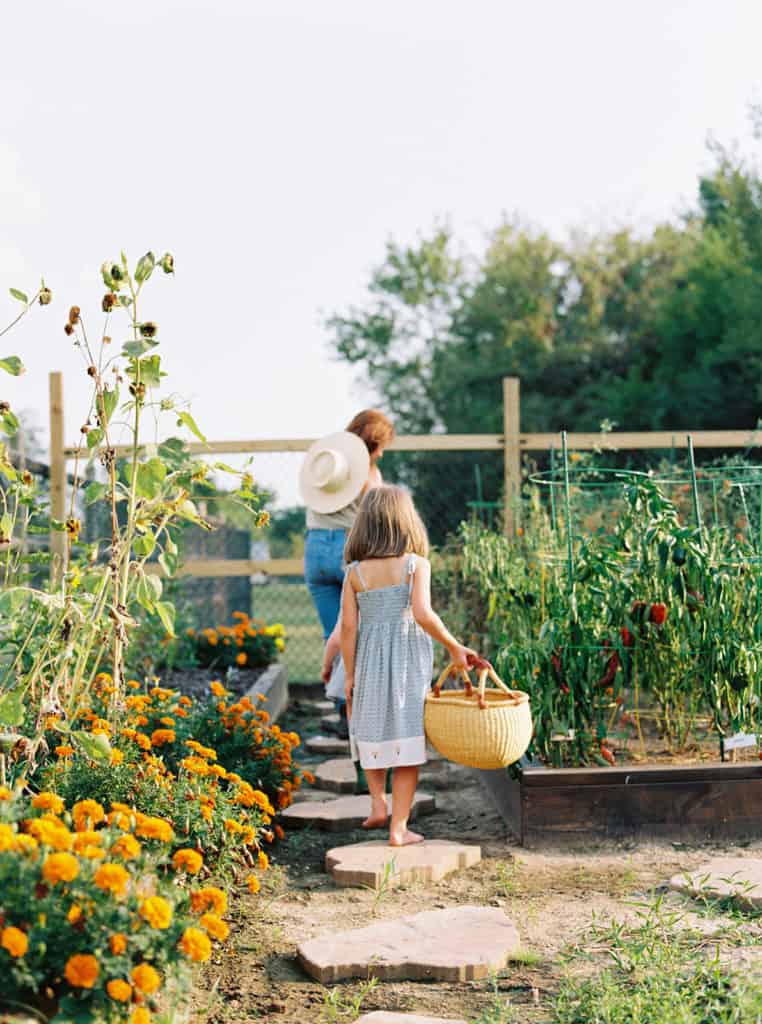
Design Your Garden
What you’ve decided to grow, where and soil conditions will impact your garden design. Also, creating a design that complements your home’s style, is within your budget and suits your physical needs will determine the style of garden you chose.
Garden design is a vast and exciting subject. I fall into research rabbit holes all the time thinking of different garden designs for us, and to recommend to friends.
As a beginner gardener, keep it simple for your first garden—you can always expand. Here are a few questions to help you refine what style path to follow:
- Do you want raised beds? Or, do you want to plant into the ground?
- Do you like a lot of structure in your garden? Or, do you like it to feel more natural?
- Will you be sitting, perhaps entertaining in your garden? Or, is it something to walk through or pass by?
- What is the focal point of your garden? Is it a large plant or a structure like an arbor or seating area?
- Does your garden need to be designed for efficiency and production? Or, does it need to be designed with aesthetics more in mind?
Make a list of what you want or don’t want, what you need or don’t need. Then, as you search through garden design books or Pinterest, you can be more decisive and true to what you want.
For landscape help, I always turn to Fawn Renae for our Garden & Landscape Design needs.
Gardening Books:
- Gardening 101: This was my first gardening book and one I often refer back to at the beginning of the growing season.
- The Complete Gardener: Not only is this one informative, but Monty is a great writer making it a pleasure to read too.
- Kitchen Garden Revival: This is my favorite garden book for small gardens with raised beds. Also, beautiful film photography by Eric Kelley.
Click here to find more of my favorite gardening books.
Decide to Start with Seeds or Seedlings
There are pros and cons to starting your first garden with seeds or seedlings. I like both, but it just depends on what’s going on in our day-to-day life when spring comes.
The Pro’s and Con’s of Starting Your First Garden from Seeds
Pro’s: You get to enjoy watching a plant grow from seed to full fruition. It is exciting and you will learn the most by starting with seeds.
Con’s: You have to take care of the seeds every day, and it can become costly with all the seed trays, shelves and lighting set up.
The Pro’s and Con’s of Starting Your First Garden from Seedlings
Pro’s: You are not tied to your seed trays all spring and won’t have your home covered in seed trays and lights for three months.
Con’s: Sometimes it can be hard to find specific varieties of plants as seedlings, or they sell out too quickly before you can get them.
I always recommend to do a little of both and see what happens. Then, you can decide what you prefer most!
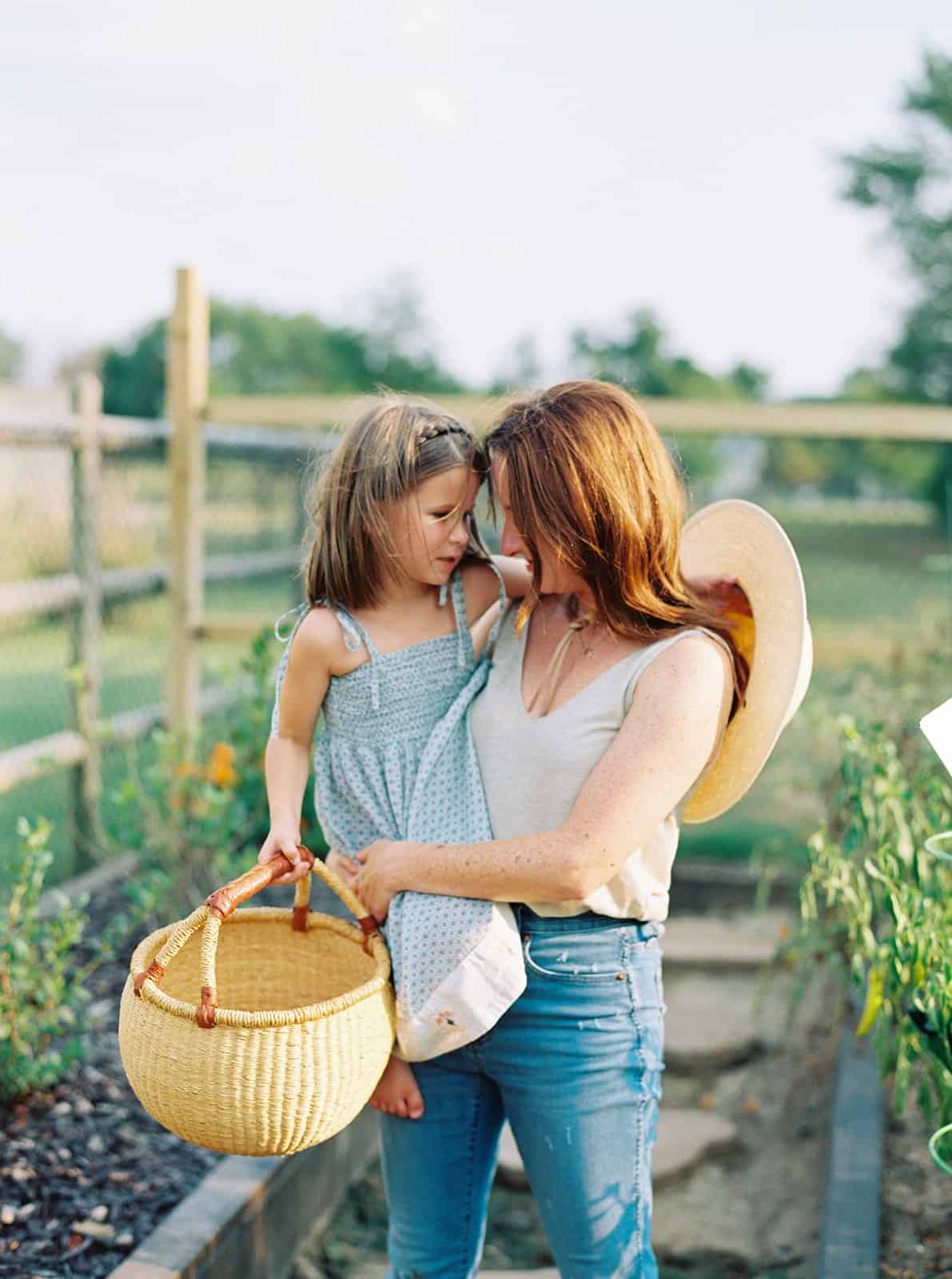
Have an Irrigation Plan
Let me start by saying, I love my husband. He is amazing. However, we had a miscommunication about where to put our first garden and it ended up being far away from the hose I was to use to water it every day.
After a few weeks I was not happy to lug that thing all the way across our home to water our first raised beds.
Don’t be like us.
Have an irrigation plan.
Plants need water daily, usually in the morning. And most plants prefer being watered through a soaker system, meaning a hose runs through your garden and waters the plants from below.
Soaker systems can get expensive—or you need to be a little handy—and I know many first-time gardeners prefer to hand water their first gardens before committing to a full irrigation system.
That is fine, but do have some sort of plan and make sure the plan is not going to drive you crazy.
Be realistic About How Much Time and Money You Have to Spend on Your First Garden
The self-discipline it takes for me to not over-spend on seed catalogs each winter or on seedlings at the nursery, or dream up five more raised beds than we need is a Herculean effort.
I get it.
You will scroll your social media and see big, beautiful gardens and want a Monty Don Longmeadow of your own as your first garden. I will not tell you no, but I will say be mindful. (Go read Monty’s story about his garden—a garden he’s been working on since 1991!)
Be mindful of your budget and your time. Be honest about how much you can allocate to your garden. You don’t want to run out of money before you vision is complete, or watch plants die because you don’t have the time to nurture them.
As I said before, you can always expand the next year. And you will be so happy, and so much more confident, creating your first garden within your budget and that you can actually manage well.
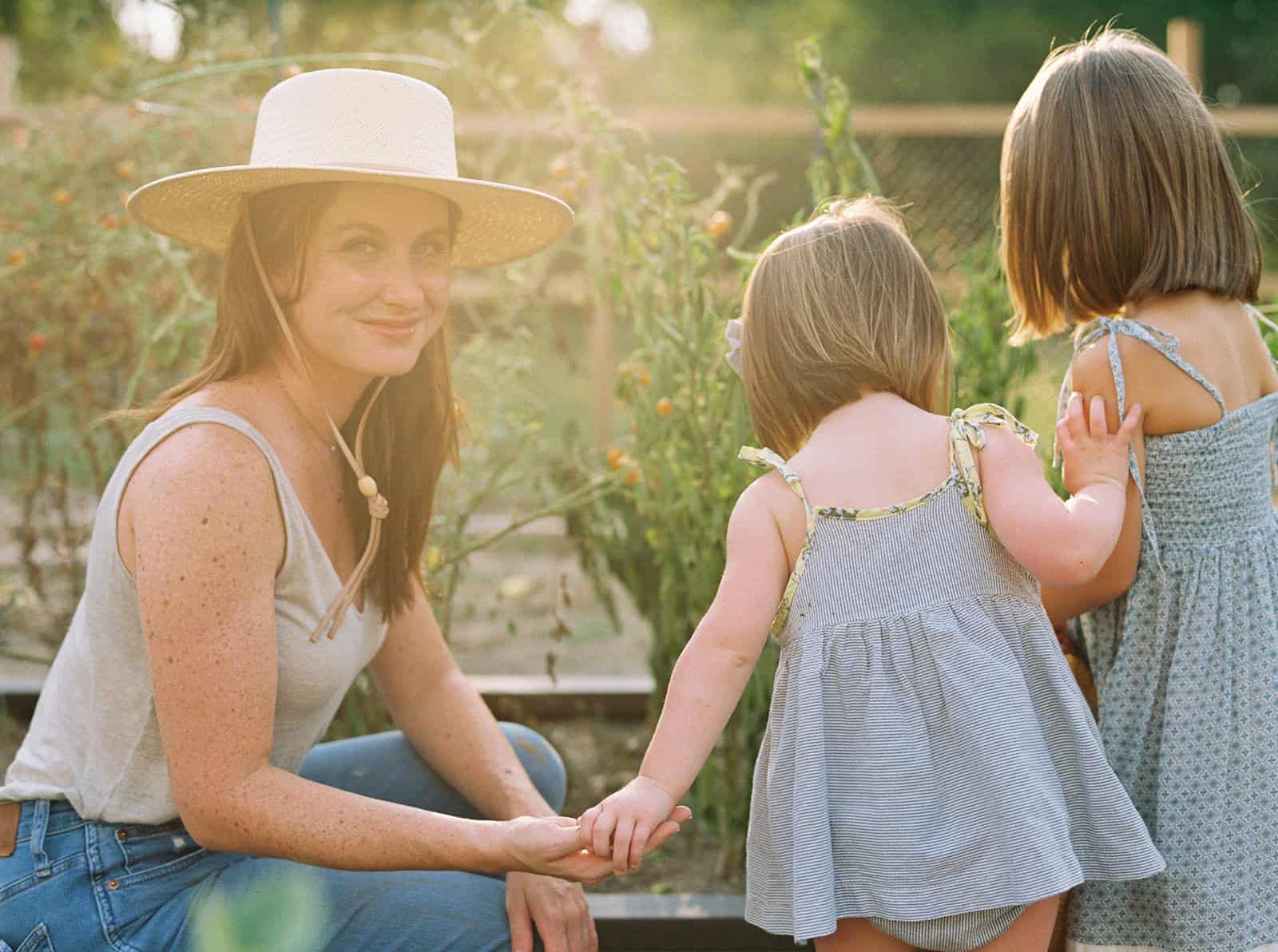
Why I Think Everyone Needs a Garden
Whether it’s some basil and mint in little pots on a windowsill, or a full acre potager, everyone needs a garden.
I think everyone needs to feel dirt under their fingernails, plant something and wait to see what happens.
Nature heals, it balances. Garden teach us patience, the power of paying attention. It’s the perfect environment to foster growing, curious minds. It is fun and exciting, full of beautiful lessons along the way.
If you’re debating whether or not to start your first garden, go for it. You can do it. I know you won’t regret it!
Affiliate Disclosure & Content Disclaimer
This post may contain affiliate links from a sponsor, Amazon Affiliates or other program. If you use these links to buy something we may earn a commission at no extra cost to you. This allows me to continue creating more content that you love. The content of this article is for general information purposes only. My goal is to provide you with the best information possible from my personal experiences for you to make the best decisions on the given topics for yourself.
Photographs by Leah Payne